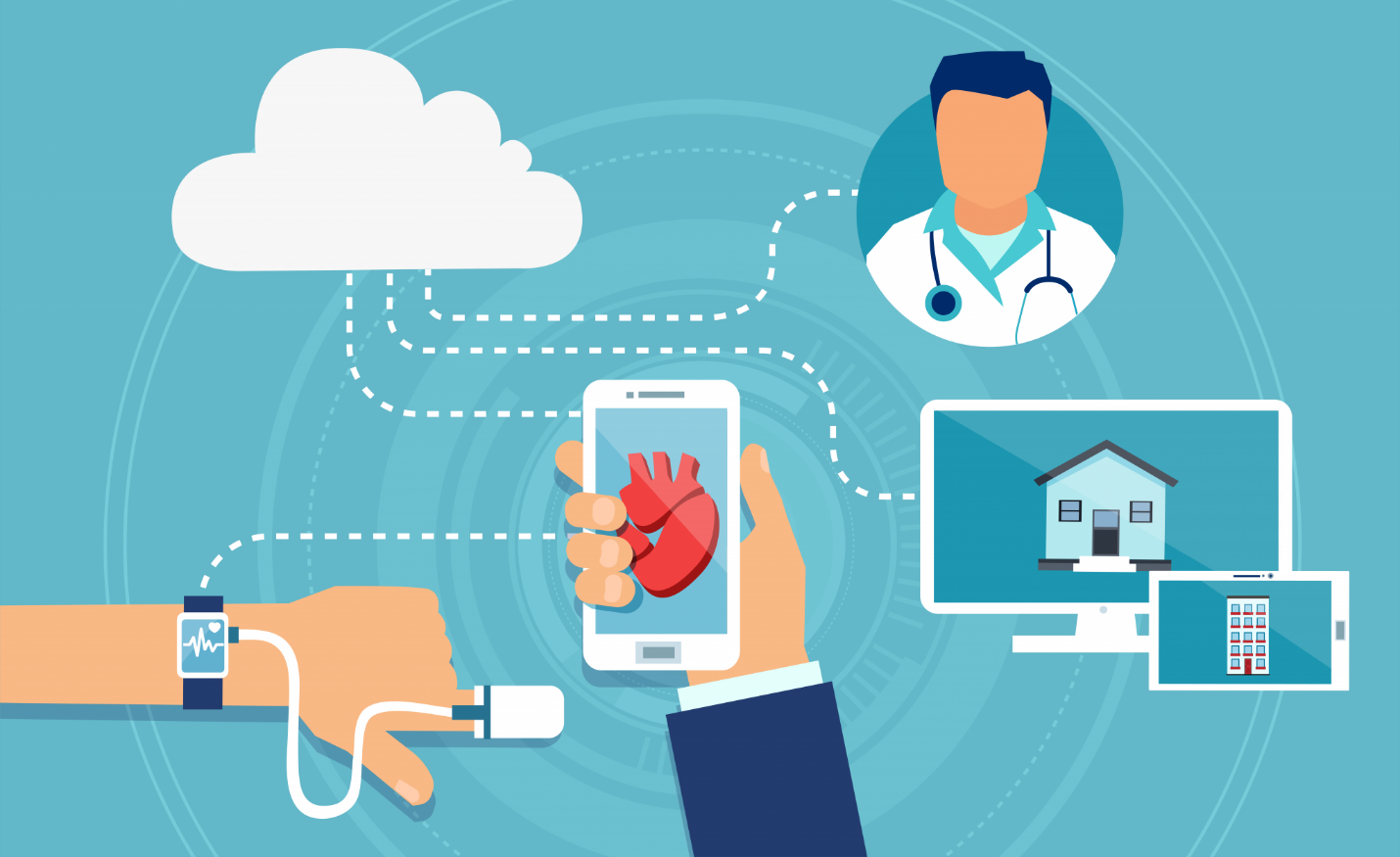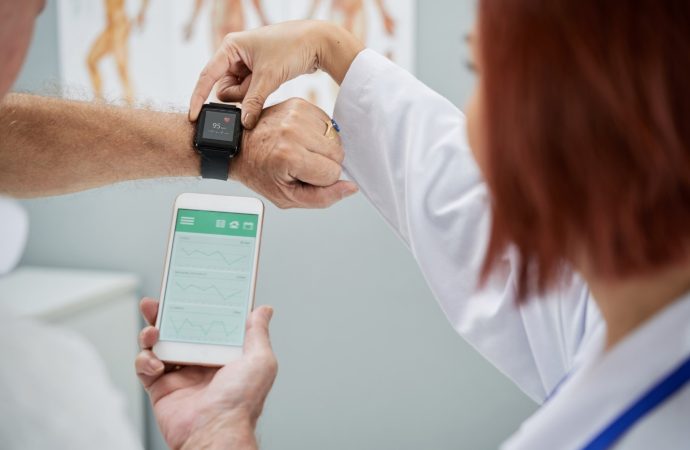In recent years, the intersection of technology and healthcare has given rise to a new era of personalized medicine, largely driven by the advent of Wearable Health Tech. These innovative devices, ranging from fitness trackers to advanced biosensors, are revolutionizing how we monitor, understand, and manage our health. This article delves into the profound impact
In recent years, the intersection of technology and healthcare has given rise to a new era of personalized medicine, largely driven by the advent of Wearable Health Tech. These innovative devices, ranging from fitness trackers to advanced biosensors, are revolutionizing how we monitor, understand, and manage our health. This article delves into the profound impact of Wearable Health Tech on personalized medicine, exploring its benefits, challenges, and future prospects.
The Rise of Wearable Health Tech
Wearable Health Tech refers to electronic devices that can be worn on the body to collect and deliver health-related data. These devices include smartwatches, fitness bands, smart clothing, and even implantable devices. The primary function of these wearables is to track various health metrics such as heart rate, sleep patterns, physical activity, and more.
The popularity of Wearable Health Tech has surged, with millions of people worldwide adopting these devices. According to a report by Grand View Research, the global wearable medical device market is expected to reach $111.9 billion by 2028, growing at a compound annual growth rate (CAGR) of 26.8% from 2021 to 2028. This rapid growth is fueled by advancements in sensor technology, increased health awareness, and the integration of artificial intelligence (AI) and machine learning (ML) in healthcare.
Benefits of Wearable Health Tech in Personalized Medicine
Real-Time Health Monitoring
One of the most significant advantages of Wearable Health Tech is the ability to monitor health in real-time. Traditional healthcare often relies on periodic check-ups and patient-reported symptoms, which can result in delayed diagnosis and treatment. Wearables, on the other hand, continuously collect data, providing a comprehensive and up-to-date picture of an individual’s health status.
For instance, wearable devices can detect irregular heartbeats, monitor glucose levels, and track physical activity, allowing for early detection of potential health issues. This real-time monitoring enables healthcare providers to intervene promptly, potentially preventing serious complications.
Data-Driven Personalized Care
Wearable Health Tech generates vast amounts of data, which can be analyzed to gain insights into an individual’s health patterns and behaviors. This data-driven approach allows for highly personalized care plans tailored to the unique needs of each patient.
For example, a wearable device can track a patient’s sleep patterns and physical activity levels, providing valuable information to tailor a personalized fitness and wellness plan. Similarly, continuous glucose monitors can help diabetics manage their condition more effectively by providing real-time feedback on blood sugar levels.
Enhanced Patient Engagement
Wearable Health Tech empowers patients to take an active role in managing their health. By providing real-time feedback and actionable insights, these devices encourage individuals to make healthier lifestyle choices. This increased engagement can lead to better adherence to treatment plans and improved overall health outcomes.
Moreover, wearable devices often come with user-friendly interfaces and mobile apps that allow patients to track their progress, set goals, and receive personalized recommendations. This level of engagement fosters a sense of ownership and accountability, motivating individuals to stay committed to their health and wellness goals.
Remote Patient Monitoring
The COVID-19 pandemic has highlighted the importance of remote healthcare solutions. Wearable Health Tech plays a crucial role in enabling remote patient monitoring, reducing the need for in-person visits and minimizing the risk of exposure to infectious diseases.
Healthcare providers can remotely monitor patients with chronic conditions, such as hypertension or heart disease, using wearable devices. This remote monitoring allows for timely adjustments to treatment plans and reduces the burden on healthcare facilities. Additionally, it ensures that patients receive continuous care, even in challenging circumstances.

Picture by: Yandex.com
Challenges and Considerations
While Wearable Health Tech offers numerous benefits, it also presents several challenges and considerations that need to be addressed.
Data Privacy and Security
The collection and transmission of health data through wearable devices raise concerns about data privacy and security. Ensuring that patient data is protected from unauthorized access and breaches is paramount. Manufacturers and healthcare providers must implement robust security measures and comply with regulations such as the Health Insurance Portability and Accountability Act (HIPAA) to safeguard patient information.
Accuracy and Reliability
The accuracy and reliability of wearable devices are critical for their effectiveness in personalized medicine. Inaccurate or inconsistent data can lead to misdiagnosis or inappropriate treatment plans. Therefore, continuous improvement in sensor technology and rigorous validation of wearable devices are essential to ensure their reliability.
Integration with Healthcare Systems
For Wearable Health Tech to be truly effective, it must seamlessly integrate with existing healthcare systems. This integration allows for the efficient sharing of data between patients, healthcare providers, and electronic health records (EHRs). Interoperability standards and collaboration between technology companies and healthcare organizations are crucial to achieving this integration.
User Adoption and Adherence
The success of Wearable Health Tech depends on user adoption and adherence. Some individuals may be hesitant to use wearable devices due to concerns about privacy, cost, or perceived complexity. Education and awareness campaigns, along with user-friendly designs and affordable options, can help overcome these barriers and encourage wider adoption.
The Future of Wearable Health Tech in Personalized Medicine
The future of Wearable Health Tech in personalized medicine is promising, with ongoing advancements and innovations on the horizon.
AI and Machine Learning Integration
The integration of AI and ML with wearable devices holds great potential for personalized medicine. AI algorithms can analyze vast amounts of data collected by wearables to identify patterns, predict health outcomes, and provide personalized recommendations. For example, AI-powered wearables can detect early signs of chronic diseases, such as diabetes or cardiovascular conditions, and suggest preventive measures.
Advanced Biosensors
Advancements in biosensor technology are enabling the development of more sophisticated wearable devices. These biosensors can measure a wide range of biomarkers, including blood pressure, hydration levels, and even stress hormones. The ability to monitor multiple health parameters simultaneously enhances the accuracy and comprehensiveness of personalized health assessments.
Wearable Drug Delivery Systems
Wearable drug delivery systems are an emerging area of Wearable Health Tech. These devices can administer medications in a controlled and precise manner, tailored to an individual’s specific needs. For example, wearable insulin pumps can deliver insulin based on real-time glucose readings, optimizing diabetes management.
Integration with Telemedicine
The integration of Wearable Health Tech with telemedicine platforms is set to transform remote healthcare. Wearables can provide real-time data to healthcare providers during virtual consultations, enabling more accurate diagnoses and personalized treatment plans. This synergy between wearables and telemedicine enhances the accessibility and convenience of healthcare services.
Conclusion
Wearable Health Tech is revolutionizing personalized medicine by providing real-time health monitoring, data-driven insights, and enhanced patient engagement. While challenges such as data privacy, accuracy, and integration need to be addressed, the future of Wearable Health Tech is bright, with advancements in AI, biosensors, and wearable drug delivery systems on the horizon. As technology continues to evolve, Wearable Health Tech will play an increasingly vital role in empowering individuals to take control of their health and receive personalized care tailored to their unique needs.
















